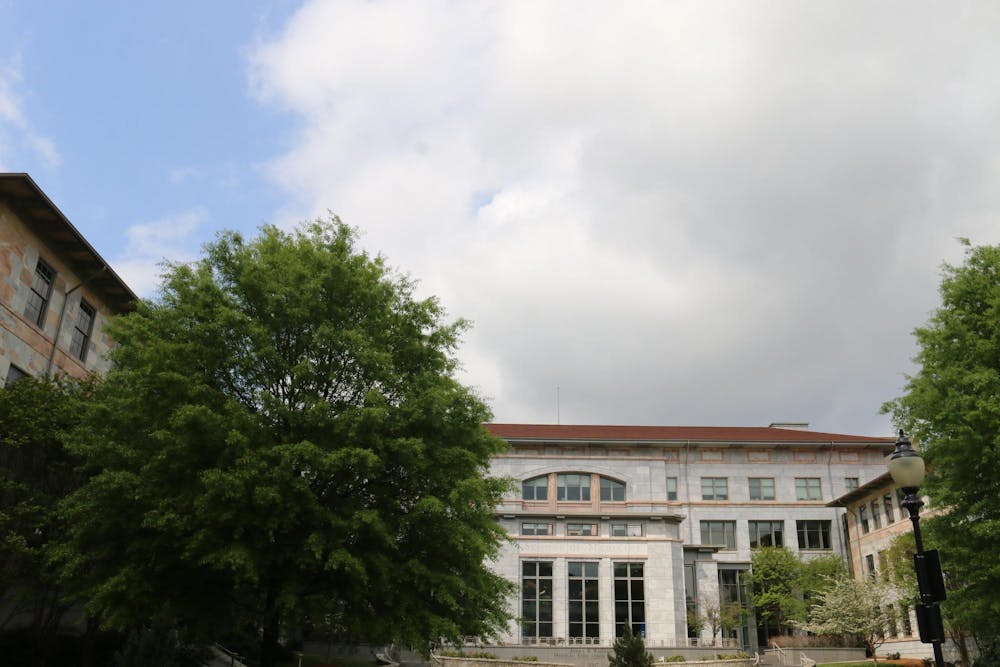Emory University and external benefactors awarded several Emory students with funding awards to pursue research in fields ranging from medical sciences to sociology over the past year. While some investigated social phenomena surrounding college students and cancer survivors, and others engineered biomedical software, they each created societal impact in unique ways.
Thien Nguyen (26C) spent his summer at Brown University (R.I.), working through The Leadership Alliance’s Summer Research Early Identification Program. As a double major in sociology and economics, Nguyen researched how first-generation college students navigated friendships on college campuses and how race and socioeconomic status influenced their social lives.
Nguyen’s conducted in-depth evaluations of qualitative datasets from interviews with first-generation college students who attended elite, top 25 universities. He found that a majority of these students struggled with a sense of belonging due to a lack of prior knowledge about college life, and tended to socialize with other first-generation students. As a first-generation college student, Nguyen said that the research felt very close to his heart.
“I really, really liked it because it reminded me a lot of the challenges I had growing up, and being able to see that people were doing research on it was really interesting to me,” Nguyen said.
Meanwhile, Hayden Smith (25M) received research funding from the Radiological Society of North America. Neuroradiology Division Director Brent Weinberg, who Smith worked under for the research project, initially brought the opportunity to Smith’s attention.
As a long-time radiology enthusiast, Smith’s research focused on creating a learning module to enhance students’ understanding of cerebellopontine angle tumors, which possess specific imaging features such as their unique location between the brainstem and the cerebellum. The research process encompassed months of collecting over 100 CT scans of brain tumors followed by the testing, interpretation and analyses of the results.
“There’s lots of images out there, and there’s a lot of different ones that I had to go through that maybe weren’t a great fit or didn’t look like a classic case, so it did take probably a little more time than I was expecting,” Smith said.
Before studying medicine at Emory, Smith taught science to middle school students in Tennessee, an experience that served as the inspiration behind his research project. He hopes the project will make an impact as an educational tool and facilitate case-based practice-style learning.
Gayeong Kim (23G, 24N, 26G) researched the effects of social determinants on healthcare transition readiness for childhood cancer survivors. She said her experience as a nurse at a children’s hospital largely influenced her research.
“While I was working there, I’ve seen so many children with chronic diseases such as cancer but also Type 1 diabetes, and I’ve seen that so many children are struggling with their self-management skills,” Kim said.
Kim also highlighted the current faults in the system. While resources for childhood cancer survivors and their clinicians do exist, they mostly focus on treatments rather than helping the patients improve their self-management abilities, Kim said. She noted that social determinants, such as access to medical services and financial conditions, are largely overlooked.
With the help of the Children’s Healthcare of Atlanta, Kim utilized the home addresses of study samples to conduct secondary data analysis highlighting the correlation between living conditions and healthcare transition readiness. After graduating from Emory this year, she plans to continue conducting her research both in Korea and the United States.
Srijon Sarkar (27C) dedicated his summer to two individual projects. He participated in the 2024 Research Experience for Undergraduates on Computation Mathematics and Data Science. During the event, Sarkar collaborated with students from other institutions to deblur CT scan results using methods of linear algebra and sequentially formatted deep learning. As the youngest aspiring engineer on the team, he often consulted the other members regarding course selections and computer theories.
Additionally, Sarkar discovered an interest in studying cancer biology after attending Associate Professor of Mathematics and Computer Science Alessandro Veneziani’s sample class during the Woodruff Scholars Finalist Week last spring. Sarkar reconnected with Veneziani in the fall, and Veneziani referred Sarkar to Edmund Waller, a hematologist who led Sarkar to his second research project designing receptor antagonists for pancreatic cancer.
“I reached out to him that night and the next morning I got a response,” Sarkar said. “So I went there and I said that I had a very pure math background. I don’t have much biology knowledge, but I’m happy to learn, devote the time.”
Sarkar expressed gratitude to Emory, as well as the professors and peers involved in both projects.
“Emory literally betted on me,” Sarkar said. “They’re willing to take the bet on an international student from this small town high school from India.”






